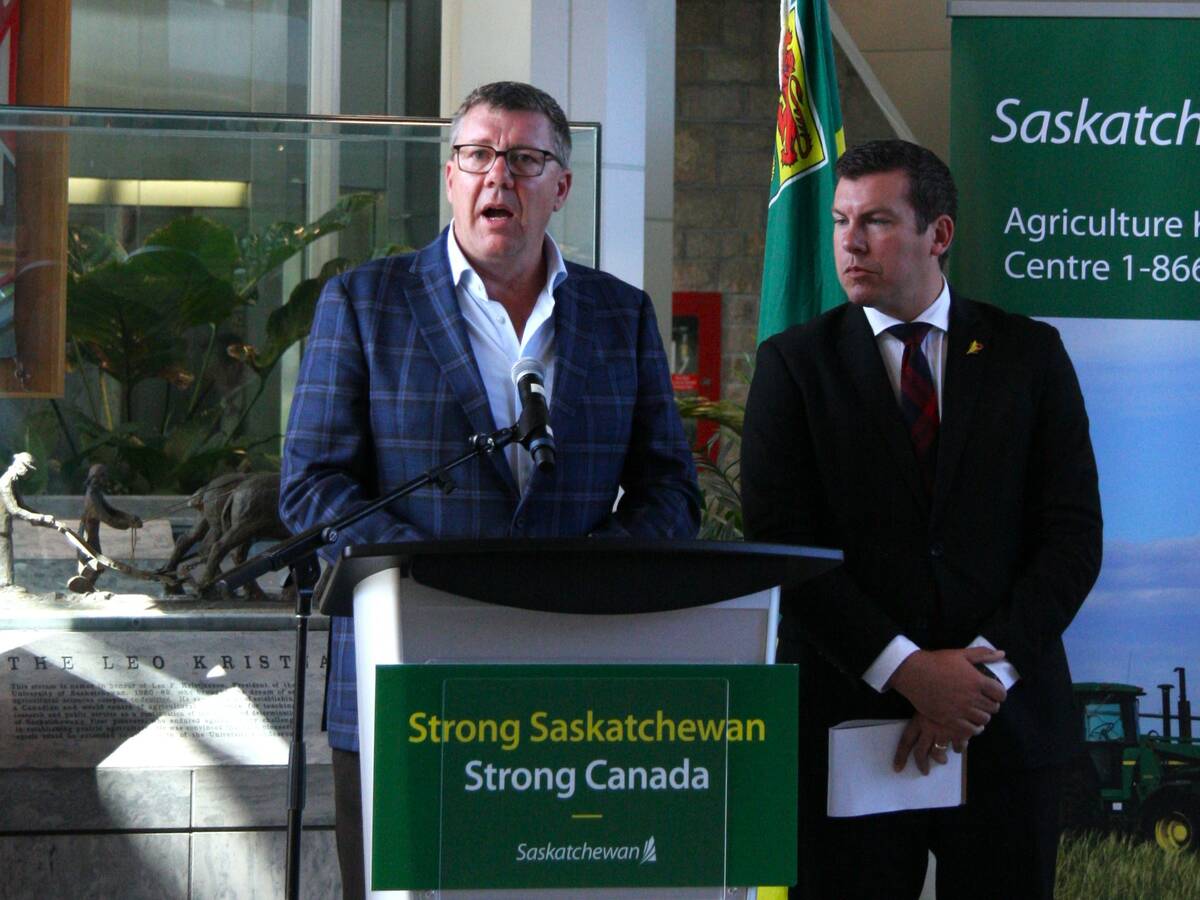Canada decided last weekend to remain a member of the trade
liberalization-promoting Cairns Group for now, despite some sharp
disagreements on goals for the current round of world trade talks.
At a parallel meeting of farm leaders, Canadian Federation of
Agriculture president Bob Friesen refused to sign a declaration by
Cairns country farm leaders urging the group to stay the course in
demanding radical subsidy cuts and border openings.
He said Cairns proposals, if adopted, would lead to loss of crop
Read Also

Key actions identified to address canola tariffs
Federal and Saskatchewan governments discuss next steps with industry on Chinese tariffs
insurance, the Net Income Stabilization Account program and supply
management programs.
“Canada’s farmers feel that NISA, crop insurance and our orderly
marketing structures are an integral part of the Canadian agricultural
system and the loss of these programs is not acceptable,” Friesen said
in an Oct. 21 statement.
At a meeting in Santa Cruz, Bolivia, Oct. 18-21, agriculture minister
Lyle Vanclief signed onto a Cairns call for elimination of export
subsidies and “the maximum possible reduction in trade-distorting
domestic support, as well as improved market access for all agriculture
and food products.”
But Vanclief did not budge from his position that Canada does not
support Cairns positions on slashing domestic support or border
protections to the point that would hurt Canada.
In Ottawa, Agriculture Canada trade official Graham Barr said the
government continues to believe the Cairns group is a vehicle within
which Canada’s overall trade goals can be pursued in World Trade
Organization talks.
But it is not an open-ended commitment to stay in Cairns. He said there
is concern that the Cairns proposals to change domestic support and
market access rules could be seen by other countries as too extreme.
“We fear that those would be viewed as very, very extreme by other WTO
members with the effect that the Cairns Group proposal would be
dismissed as radical and not considered,” he said. “We don’t see that a
proposal that is going to be dismissed and laughed out of the room is a
good way to advance our position. At this time we are continuing to
work with the Cairns Group because it helps us, but if it starts not to
help us, then there’s other things to consider.”
Ambivalence like that is a concern for the Canadian Agri-Food Trade
Alliance, which represents groups ranging from Grain Growers of Canada
to the Canadian Cattlemen’s Association. They do not believe Canada
should compromise export interests for domestic protections.
CAFTA president and Ontario soybean producer Liam McCreery was in
Bolivia for the Cairns meeting and he was urging Canada to sign onto
the majority position.
In Ottawa, GGC executive director Cam Dahl said exporters are happy
that Canada remains in Cairns.
“We believe that our interests are best pursued in a broader coalition.”
He also suggested the CFA should not be Canada’s only farmer
representative at Cairns meetings. It represents both exporters and
supply managed sectors.
Dahl said McCreery argued in Bolivia that exporters also should be
members of the Cairns farmer groups.
“I fully understand where the CFA is coming from, but our point is they
may not represent the full farmer opinion on trade issues.”
















